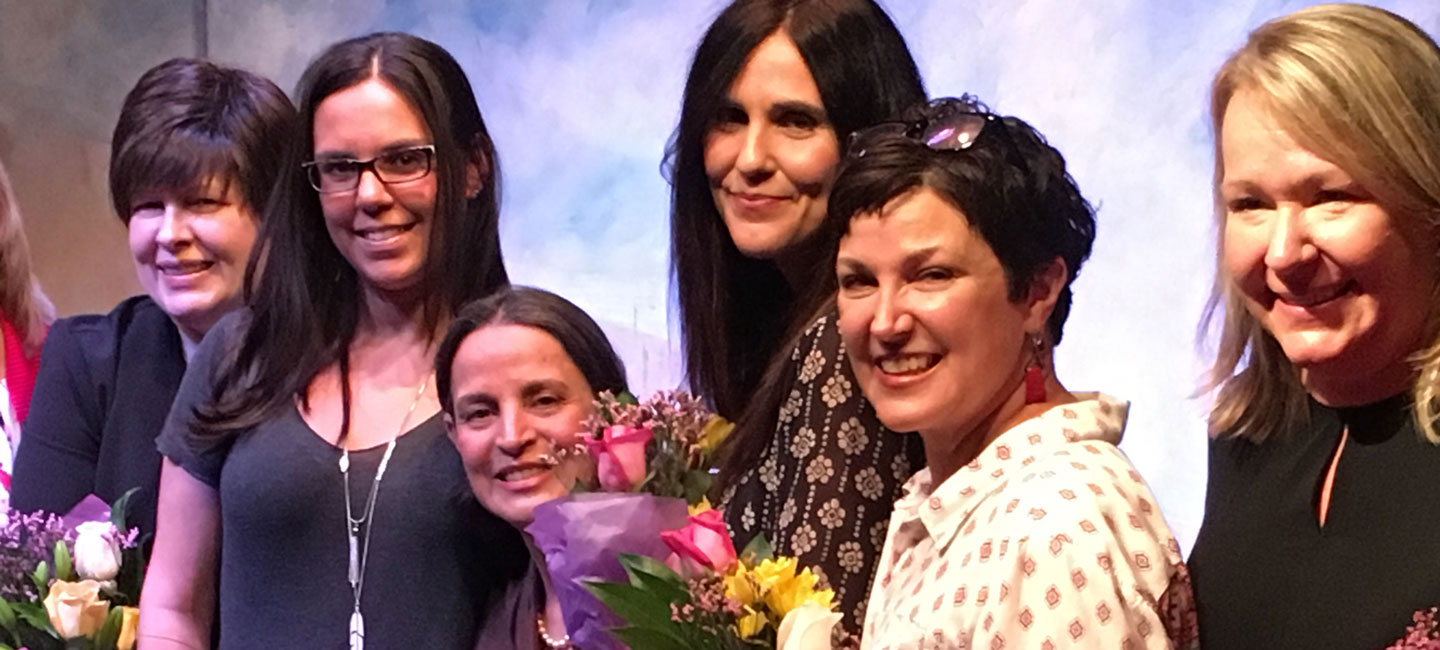Seeking and Speaking Your Story Helps Healing Process
Stephanie Hulbert does not like the color pink. Pink is the color she was forced to declare her favorite in childhood. Pink is the color she looks good in. Pink is the color of breast cancer.
Throughout her life, the color pink has surrounded her, but it wasn’t until she went through Moffitt Cancer Center’s Seek and Speak Your Story program that she understood why the preppy pigmentation had her seeing red.
Seek and Speak Your Story is a four- to six-week workshop in which patients, caregivers, survivors and Moffitt team members share true, personal stories about their lives with the goal of creating a seven-minute compilation of important life moments and insights.
Using a workbook, the class begins by “seeking,” which means spending time recalling all sorts of life moments. The group helps each other stir the pot of memories to create a timeline of important life events. Then each person links two or three of their life events together thematically. Then comes the “speaking” part, which is to share the story in front of an audience.
Breast cancer survivor Robin Gordon has co-facilitated the class for more than five years. She stresses that it is not a writing class. “At no point are we writing our stories down and then memorizing them,” she said. “We are merely telling stories over and over again as a way of finding the best shape for that story. Much the same way that you would practice telling a joke until you got it perfect!”
Gordon says everyone has favorite stories that have happened throughout life. She usually begins by sharing some of her own experiences such as a bad date or a first job interview. She explains that sharing personal stories usually triggers similar memories for everyone and gets the ball rolling. She emphasizes that the Seek and Speak Your Story program is designed to incorporate all stories, not just those related to cancer.
For Hulbert, the class reminded her of a lost childhood memory of her sister making her choose pink as her favorite color, though she really didn’t like it. Years later when doctors diagnosed her with breast cancer, she became scared of pink. Every time she saw the color, it reminded her that she was sick. By seeking her story she realized that just like when she didn’t have a choice when selecting her favorite childhood color, she didn’t choose to get breast cancer. She says until she made that connection, cancer sort of hovered about the timeline of her life, but never really became a part of it.
In addition to defining the story of her life, Hulbert says she enjoyed meeting other people with cancer because she was able to talk about the illness without others changing the subject. “It was an amazing feeling to talk about cancer as if you were standing around a water cooler at work,” Hulbert explained.
Gordon sees the many benefits of participating in the program. “We fill our days with stories, everything from books to movies to podcasts and even the news,” she said. “When you can see all the ups and downs of your life as a series of stories, you realize that cancer is merely a chapter in anyone’s life. We were full and interesting people before cancer, and we certainly are more than our cancer. Experiencing our cancer as simply one of our many life events can help us share, and sharing helps us cope.”
Hulbert says she’s taken part in multiple programs Moffitt offers such as Seek and Speak Your Story, yoga, massage and physical therapy. She says she appreciates that Moffitt understands that healing from cancer comes from more than surgeries, chemotherapy and radiation.
The next Seek and Speak Your Story workshop takes place in September. Learn more here.
Please call 813-745-7618 or email PatientLibrary@Moffitt.org to reserve your spot.



